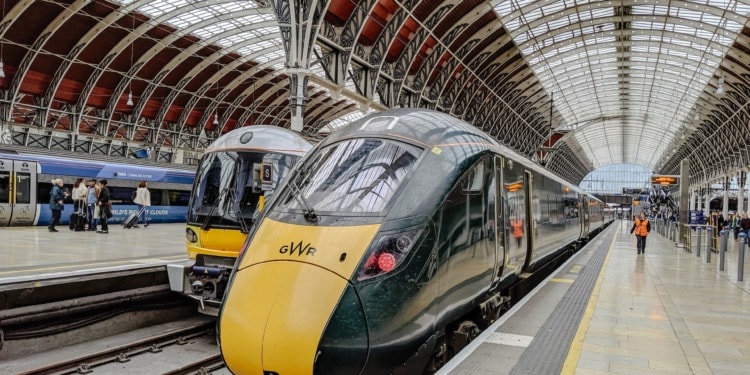Brace yourselves, travelers, as the UK’s rail network faces yet another storm of disruptions today. The Rail, Maritime, and Transport (RMT) union is once again on strike, bringing rail travel to a screeching halt for three days this month. The long-running dispute between rail unions and train companies over pay and conditions has unleashed a fresh wave of industrial action. Rail strikes will impact hundreds of thousands of passengers and foreshadow disruptions across the country.
When will the rail strikes take place?
The Rail, Maritime, and Transport (RMT) union calls its members to walk out today, July 20, and the strikes are also set to occur on July 22, and 29. About 20,000 RMT members across 14 rail operators will participate in the actions.
Due to strike action by the RMT union, please only travel if absolutely necessary today.
A significantly reduced service is operating on a limited number of lines, with trains running between 0700 and 1900 only.
For more information, visit: https://t.co/dw6ExSIS01 pic.twitter.com/XrL8lB6eVw
— SWR Help (@SW_Help) July 20, 2023
Why are rail workers resorting to strike action?
The root cause of these strikes lies in the union’s demand for improved job security, pay for rail workers, and concerns over working conditions. During the union’s ongoing battle over pay and job security for rail workers, they have accused train operators of failing to present a new pay offer that could help resolve the dispute. Meanwhile, the Aslef union, which represents train drivers, is staging a week-long overtime ban from July 31 to August 5, which will affect 15 train operators.
Which rail operators will strike?
Not all train companies will be on strike, but around 20,000 members of the RMT union are expected to take action. The 14 rail operators scheduled to strike this month are:
- Avanti West Coast
- C2C
- Chiltern Railways
- CrossCountry
- East Midlands Railway
- GTR (which operates Southern, Thameslink, Great Northern, and Gatwick Express)
- Great Western Railway
- Greater Anglia (which includes Stansted Express)
- LNER
- Northern Trains
- Southeastern
- South Western Railway
- TransPennine Express
- West Midlands Trains
Eurostar, the high-speed rail service connecting the UK to Europe, has reassured passengers that their timetable will not be affected by the strikes.
RELATED ARTICLES: Industrial Action: A Threat to the Environment? | Workers’ Unions Win in the US and UK: Upsurge or Blip? | CO2Rail, Using Rail-based Direct Air Capture To Get To NetZero | Passenger Rail, Maglev and the Future of Transit
What should I do if my trip is affected by the rail strikes?
According to National Rail, if the strike impacts your train, you are entitled to a change or refund from the original retailer of your ticket. You may also be able to use your ticket with another train company or take an alternative route if available.
Additionally, if you have a connection within the UK, be sure to check if your journey is still running before you embark. More information on rail services during the strikes will be posted on the National Rail website.
https://twitter.com/EastMidRailway/status/1680819981741686784
When will the strikes end?
That’s the million-dollar question, as the end to these strikes remains uncertain. Unless the RMT and other unions strike a deal with rail operators on pay, job security, and working conditions, passengers will have to brace themselves for more disruptions throughout 2023.
So, fellow passengers, hold tight, stay informed, and prepare for potential disruptions. If you’re planning to travel by train this month in the UK, it’s essential to keep an eye on the strike dates and their potential impact on your journey. Remember to check with your operator for any service changes and, if needed, explore alternative travel options. For now, the fate of train travel in the UK lies on both parties and their ability to find common ground. All we can do is hope for a resolution soon and a smoother journey for passengers in the coming months.
Editor’s Note: The opinions expressed here by the authors are their own, not those of Impakter.com. — In the Featured Photo: Train at a rail station in London. Featured Photo Credit: Unsplash








